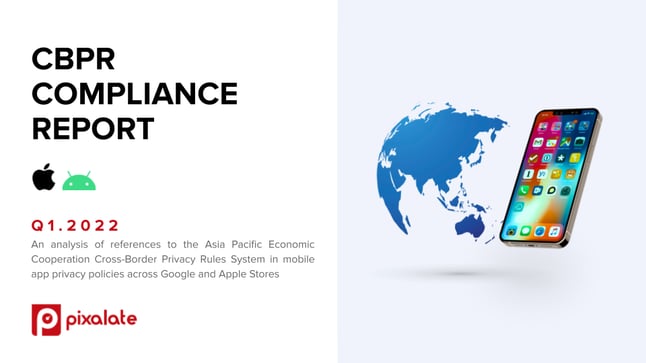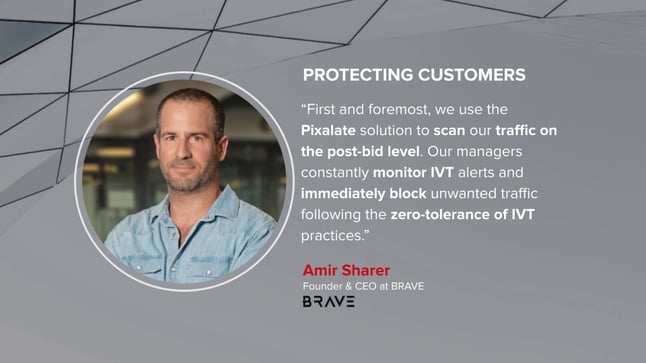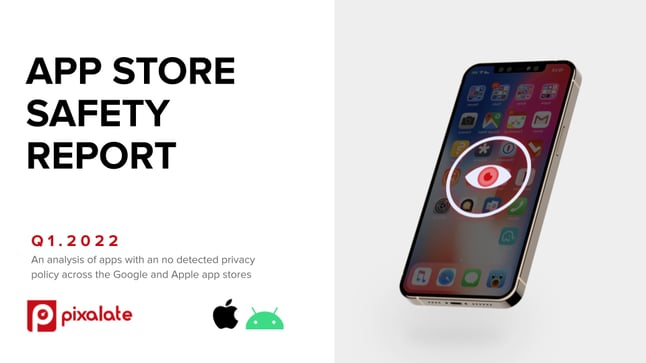
This week's review of ad fraud and privacy in the digital advertising space:
 Mac Insider published an article about Pixalate’s App Store Safety Report, saying, “many apps in Apple’s App Store lack privacy details. After analyzing 5 million apps, the report claims that they found no privacy details in 10% of those apps.”
Mac Insider published an article about Pixalate’s App Store Safety Report, saying, “many apps in Apple’s App Store lack privacy details. After analyzing 5 million apps, the report claims that they found no privacy details in 10% of those apps.”
Mac Insider cited other key findings including that, “98% of the apps without privacy policies also lack terms of service. Something more alarming is the fact that 7% of the apps with undetected privacy policies happened to likely be child-directed apps. Another interesting finding showed that more than 100,000 of the apps with no privacy data access end-user personal information.”
 Media Nama reported on Pixalate’s App Store Safety Report Q1 2022, citing that over 787,000 apps on Google and Apple’s smartphone stores have been reported to either have “undetectable privacy policies” or no such policies at all.
Media Nama reported on Pixalate’s App Store Safety Report Q1 2022, citing that over 787,000 apps on Google and Apple’s smartphone stores have been reported to either have “undetectable privacy policies” or no such policies at all.
The article goes on to define what “undetected privacy policies” meant in Pixalate’s methodology and why it matters, citing that some apps access users’ personal information without having a policy in place for how the information is handled or distributed.
 Pixalate analyzed 3.9MM app privacy policies from the Google and Apple mobile apps stores and published a list of mobile apps with Asia-Pacific Economic Cooperation (APEC) Cross-Border Privacy Rules (CBPR) referenced in their privacy policy, including those registered to companies that do not appear in the CBPR compliance directory.
Pixalate analyzed 3.9MM app privacy policies from the Google and Apple mobile apps stores and published a list of mobile apps with Asia-Pacific Economic Cooperation (APEC) Cross-Border Privacy Rules (CBPR) referenced in their privacy policy, including those registered to companies that do not appear in the CBPR compliance directory.
Pixalate found that the privacy policies of 815 apps included a reference to the APEC CBPR System as of Q1 2022. See the full Q1 2022 CBPR Compliance Report here.
 Pixalate spoke with Amir Sharer, Founder & CEO at BRAVE, about maintaining ad inventory quality in the mobile in-app ecosystem. Of the company’s relationship with Pixalate, Sharer said, “we use the Pixalate solution to scan our traffic on the post-bid level. Our managers constantly monitor IVT alerts and immediately block unwanted traffic following the zero-tolerance of IVT practices. Other managers review the best practices recommended by the top anti-fraud associations and follow the recommendations. Our system has a protection layer for obvious fraud such as multi-clicks, fast-clicks, and suspicious activity of the users.”
Pixalate spoke with Amir Sharer, Founder & CEO at BRAVE, about maintaining ad inventory quality in the mobile in-app ecosystem. Of the company’s relationship with Pixalate, Sharer said, “we use the Pixalate solution to scan our traffic on the post-bid level. Our managers constantly monitor IVT alerts and immediately block unwanted traffic following the zero-tolerance of IVT practices. Other managers review the best practices recommended by the top anti-fraud associations and follow the recommendations. Our system has a protection layer for obvious fraud such as multi-clicks, fast-clicks, and suspicious activity of the users.”
 Pixalate released its App Store Safety Report for Q1 2022, analyzing apps with no detected privacy policy across the Apple App and Google Play stores. Pixalate found there are more than 787k “no-privacy policy” apps, ~17% of the Google Play store and ~13% of the Apple App store. Both Google Play Store & Apple App Store policies require a developer to have a privacy policy, indicating these apps are likely in violation of the stores’ policies and therefore carry an increased risk to consumers’ & children’s privacy.
Pixalate released its App Store Safety Report for Q1 2022, analyzing apps with no detected privacy policy across the Apple App and Google Play stores. Pixalate found there are more than 787k “no-privacy policy” apps, ~17% of the Google Play store and ~13% of the Apple App store. Both Google Play Store & Apple App Store policies require a developer to have a privacy policy, indicating these apps are likely in violation of the stores’ policies and therefore carry an increased risk to consumers’ & children’s privacy.
Apps with no privacy policy are in potential violation of the European Union’s General Data Protection Regulation (GDPR), which requires businesses to disclose their policies on user data collection and usage.
*By entering your email address and clicking Subscribe, you are agreeing to our Terms of Use and Privacy Policy.
These Stories on Weekly Recaps
*By entering your email address and clicking Subscribe, you are agreeing to our Terms of Use and Privacy Policy.

Disclaimer: The content of this page reflects Pixalate’s opinions with respect to the factors that Pixalate believes can be useful to the digital media industry. Any proprietary data shared is grounded in Pixalate’s proprietary technology and analytics, which Pixalate is continuously evaluating and updating. Any references to outside sources should not be construed as endorsements. Pixalate’s opinions are just that - opinion, not facts or guarantees.
Per the MRC, “'Fraud' is not intended to represent fraud as defined in various laws, statutes and ordinances or as conventionally used in U.S. Court or other legal proceedings, but rather a custom definition strictly for advertising measurement purposes. Also per the MRC, “‘Invalid Traffic’ is defined generally as traffic that does not meet certain ad serving quality or completeness criteria, or otherwise does not represent legitimate ad traffic that should be included in measurement counts. Among the reasons why ad traffic may be deemed invalid is it is a result of non-human traffic (spiders, bots, etc.), or activity designed to produce fraudulent traffic.”

